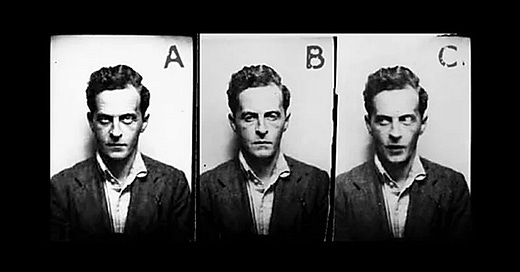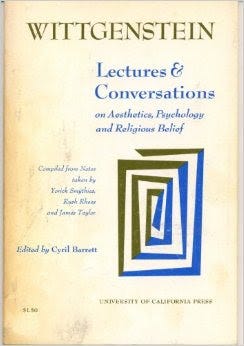As someone who writes, in other words, tries to put the images in my mind as words on a page - I, of course, have a profound respect for the writings of Ludwig Wittgenstein. He is not the most accessible philosopher to follow or understand, but he's the most rewarding concerning my writing. The beauty of his thought is not the end of the process but the journey itself. Wittgenstein often struggles to make himself understandable to his readers and students.
"Lectures & Conversations" is an absorbing book. Ironically, it's a book about communicating what you think, but here, it is being filtered and written down as notes by his students in Cambridge in the 1930s. The primary focus of this small book is aesthetics in how one sees something and describes that experience. In this part of the book alone, there are two students' notes from the lecture, which is interesting because you're getting the same information (we think), but the fact that it is two separate people, how they process that information. So overall, the book is about what Wittgenstein is stating, but then how that information or his thoughts are being dealt with in a lecture format.
The other subject matters in this book are psychology and religious belief. Wittgenstein reading of Freud is a mind-bending experience. The landscape is enormous, and Wittgenstein works best in a smaller context. For instance, what is on the table, and what does that mean to you? He didn't comment on that, but I'm just using that as an example compared to the meaning of dreams.
Since I have been reading off and on, Wittgenstein, for the past five years or so, I can see his presence in my work. I only partially grasp everything he writes or lectures about, but I get the 'drift.' In his nature, he writes like a poet who thinks logically. I'm a fan of Wittgenstein.





Thanks Tosh! I don’t know this book but I too read him and find that he’s always trying to describe what can’t be explained. If he had lived in a different culture he might have been a Zen Roshi.